ND Dem-NPL Leaders Announce Investment Priorities for Special Session
For Immediate Release
Sept. 21, 2021
Fargo —Childcare, family leave and hard and soft infrastructure are the investment priorities of North Dakota Democratic-NPL for the $1 billion in federal aid the state has received.
Dem-NPL legislative legislators announced their suggestions today at news conferences in Fargo and Bismarck, outlining three areas of urgent needs that could be addressed by the funds from the federal American Rescue Plan Act (ARPA).
A special session of the ND Legislative Assembly has been tentatively called for the week of Nov. 8, 2021. The legislature will finalize new legislative district maps as well as decide how to spend the $1,007,000,000 that North Dakota has received but not yet spent.
Sen. Tim Mathern (D-Fargo) and Rep. Alisa Mitskog (D-Wahpeton) – who serve on the legislature’s Appropriations Committees – noted three reasons for holding a special session now.
- The ARPA funding was provided to North Dakota by the federal government by congressional action in March 2021. Each day it is not spent, its value decreases due to opportunity costs and inflation. Further, the delay in allocating the funds sends the message to Congress and the President that North Dakota does not need the money with eventual additional resources going to other states. With the extraordinary costs of the pandemic and weather catastrophes across the country, claw backs may also be considered by the federal government if the money is not allocated soon.
- As other states allocate their ARPA funds, workers and companies will leave North Dakota to take advantage of the jobs created by the investments other states are making.
- The time to jump start North Dakota’s economy is now. This federal investment is an opportunity to act big and move our economy to the next higher level for the workforce and families of the future.
Mathern and Mitskog outlined where the Dem-NPL believes the money should be invested. First, infrastructure projects, both traditional and non-traditional, would have long-term benefits.
- Hard infrastructure like fiber optics, natural gas collection and distribution, water projects, roads, bridges and a green energy corridor (compressed natural gas and electric fueling every 50-100 miles). The Industrial Commission would have RFP authority and would take recommendations from the Water Commission, Department of Transportation and Department of Commerce. $400,000,000.
- Soft infrastructure – specifically long-term investments in North Dakota’s services. This includes incentives for hospitals to fund behavioral health units, supportive services for persons to stay safe but out of institutions, food, housing services, Medicaid eligibility expansion and correction services for women. $100,000,000.
- Public Health Pandemic Response Education Stipends for persons who commit to working for state and local public health districts for at least five years. $7,000,000.
Second, childcare investments are needed to support families and build the workforce.
- Improve quality. Development and implementation of childcare funding formula includes providers having appropriate professional degrees and salaries for quality care. A per-child payment formula would provide $1,400 per child per year for children presently in licensed care facilities for three years. $ 200,000,000.
- Improve access. Capital investment of childcare infrastructure at public schools where the school district builds childcare buildings and maintains them for at least 50 years wherein there is a 50/50 state/local match. (This raises $300 million.) Districts can operate or permit private entities to operate the childcare operations. Another option is grants to private facilities in places where parents are employed or live that are not convenient to existing school locations, $150/$50 million. $200,000,000.
Third, North Dakota needs a paid family leave program to support businesses and families, so workers don’t have to choose between staying in their job or caring for themselves or loved ones.
- Startup costs in a fund operated by Workforce Safety and Insurance. This supports families and businesses impacted by the present pandemic and helps prepare North Dakota’s economy for the demands of the future economy. $100,000,000.
- Ongoing program operations. Families and businesses each contribute 3% of salary for three years before use of the self-funded program is permitted. The fund is the base of operations for the early years and builds with ongoing contributions. The program is voluntary for each employer.
For More Information Contact:
Senator Tim Mathern
701 893 5016
Click here for a Legislative Council memo of the plan with additional detail is attached.

